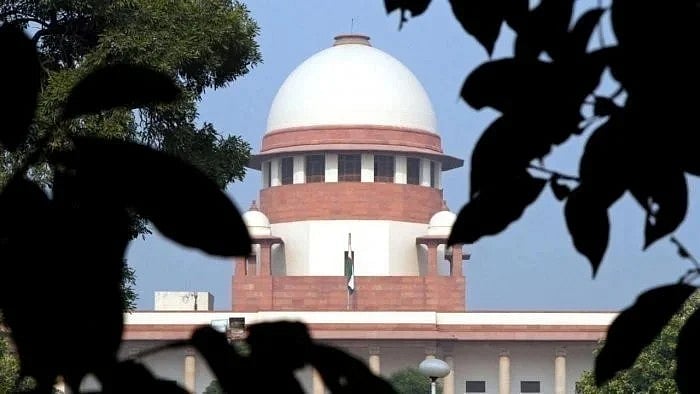
The Supreme Court of India.
Credit: PTI File Photo
New Delhi: The Supreme Court has upheld the Allahabad High Court's June 13, 2022, judgment which directed for setting up a family welfare committees in each district and two months cooling off period as safeguards against misuse of Section 498A, IPC.
A bench of Chief Justice of India B R Gavai and Justice Augustine George Masih said the guidelines framed by the High Court in its judgment would remain in effect and should be implemented by the appropriate authorities.
The High Court had stated no arrest or police action to nab the named accused people would be made in matrimonial disputes, after lodging of the FIR or complaints without concluding the "cooling-period" of two months from the lodging of the FIR or the complaint.
The HC had also said during this period, the matter would be immediately referred to Family Welfare Committe in the each district. Only those cases would be transmitted to FWC in which Section 498-A IPC along with, no injury 307 and other sections of the IPC in which the imprisonment is less than 10 years.
Every district shall have at least one or more FWC (depending upon the geographical size and population of that district constituted under the District Legal Aid Services Authority) comprising of at least three members.
The apex court's July 22 judgment also directed a woman IPS officer and her parents to publish an unconditional apology in a renowned English and Hindi daily, for causing her husband and his father to remain in jail for over 100 days and making the entire family suffer physical and mental trauma and harassment.
The apology was directed to be circulated on social media platform Facebook, Instagram, YouTube etc.
Dealing with a transfer petitions and other cases by the woman and her husband, the court invoked power under Article 142 of the Constitution to dissolve the marriage between the parties, who were living separately since 2018.
"As a result of the cases filed by the wife, the husband remained in jail for a period of 109 days and his father for 103 days and the entire family suffered physical and mental trauma and harassment. What they have suffered cannot be resituated or compensated in any manner. The woman and her parents shall tender an unconditional apology to the husband and his family members within three days," the bench ordered.
The court said, the apology is made to bring about amicable closure to the protracted legal battle and associated emotional and mental stress, and not be construed as an admission of liability and would have no bearing on the legal rights, obligations, or consequences under the law.
The bench directed the woman officer never to use her position and power as an IPS officer or any other future position, power of her colleagues or superiors or other acquaintances anywhere in the country, against the husband, his family members and relatives.
The marriage of the woman and her husband was solemnised in 2015 and a daughter was born to them next year. However, they started living separately since 2018 due to matrimonial differences.
Thereafter a total of 15 separate cases were filed against her husband and family members, who on their part also filed 10 cases against the woman and her family members. Five other cases were against each other.
After hearing senior advocate Sidharth Luthra for the woman and senior advocate Vikas Singh for the husband and his family members, the court quashed all cases, "to bring an end to the protracted legal battle between the parties and to secure complete justice".
The court allowed the wife, who claimed no maintenance, to keep the custody of the girl child and granted the husband and his family visitation rights. It said woman would have no claim over any moveable and immoveable property owned and possessed by the husband and his family members.
